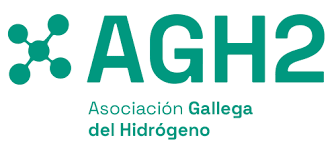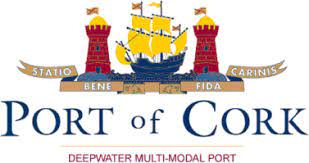Partners

ITG
Vigo, Spain
ITG is a private technology center specialized in providing R&D and differential technology to improve the competitive capacity of companies, organizations and professionals. It develops solutions in the field of industry 4.0, intelligent energy management, water digitization and unmanned aerial mobility. The centre has specialized in the development of research, development and innovation activities aimed at the generation, storage, distribution, and use of green hydrogen, from renewable energies and/or waste recovery through biological and thermochemical processes. ITG works actively in all the links of the hydrogen value chain, supporting the industrial sector, to optimize and promote these technologies. ITG’s laboratories include high-tech equipment and offer services to develop R&D projects related to the recovery of organic and biomass waste together with new biofuels testing for transport.
Visit site

Évolution Synergétique Automotive
Seville, Spain
Évolution Synergétique Automotive is a leading company specializing in engineering and zero-emission mobility. It offers innovative and technological solutions for the automotive and mobility sectors. It is a top technological partner for European manufacturers and suppliers, and a strategic reference in the design and development of components and vehicles, including battery electric vehicles and fuel cell electric vehicles. With a team of 50 people, mostly specialized engineers in electric propulsion system
development, the company has undertaken pioneering and large-scale projects, with more than 35 references in e-mobility projects across several European countries.
Visit site

France Energies Marines
Brest, France
France Energies Marines is the French institute for energy transition dedicated to offshore renewable energies. Its multidisciplinary team of more than 85 employees is very well-equipped to support R&D in the offshore renewable energies sector, which is expected to play an increased role in Europe’s action to become carbon neutral by 2050. With its multidisciplinary team of 85 employees, the Institute has the largest dedicated offshore renewable energies R&D team in France. During the last few years, the institute has put increasing effort on investigating how offshore wind energy and hydrogen production and transport could support each other’s development.
Visit site

HIVE Hydrogen
Galway, Ireland
Based on years of experience both within industry working for industrial gas majors and within the hydrogen consulting area - uniting the hydrogen and energy communities - HIVE Hydrogen participates by supporting the delivery of new, clean technical solutions for a sustainable future. Its goal is to ensure that the systems and technologies gain commercial acceptance by developing and delivering low cost, clean, onsite energy solutions and business models which compete with existing fossil technologies.
Visit site

Port of Brest
Brest, France
Port of Brest is the Brittany’s leading port and is now the focus of an ambitious development programme commensurate with the city’s economic, energy, and industrial potential. The first strategy to point out is the port's commitment to the development of new industrial activities at the commercial port by creating a new port terminal suitable for heavy consignments, particularly those involved in the marine renewable energy industry. The region of Britany is investing €220 million in port upgrades to attract players within tidal and offshore wind energy sectors. This new activity at the port regarding heavy shipments will entail new energy consumption over the current baseline. The vision is adopting the maximum environmental sustainability and self-sufficiency.
Visit site

Ports of Douro, Leixões and Viana do Castelo
Matosinhos, Portugal
Port of Leixões is one of the most competitive and versatile multipurpose ports in Portugal, representing 25% of the Portuguese seaborne foreign trade, and handling more than 18 million tons of commodities annually. Located at the intersection of important national and international routes, the port handles nearly 15 million tons of goods, which represents about 25% of the Portuguese foreign trade by sea. Approximately 2,500 vessels a year call at the port, bringing more than 700,000. Regarding cruise line passengers and transits the Port of Leixões is the second cruise port in Portugal with 112 vessels and over 100,000 passengers. The Port started the energy transition process that will lead it to achieve carbon neutrality by 2035, making it the first port in Europe to be self-sufficient in terms of energy, with the capacity to obtain all its energy from renewable sources.
Visit site

Port of Seville
Seville, Spain
The Port of Seville has been working for several years trying to foster a hydrogen ecosystem to decarbonize the port getting in contact with several entities of the value chain. It is the only inland maritime port in Spain, completely multimodal with an optimal connection between ship, train, and truck within the port public domain. The closest industry responds to the activities of metalworking, logistics, renewable energies, bio-industry and recycling, agri-food industry, and aerospace. The first investment in hydrogen is a commercial hydrogen plant which will be operative in summer of 2023. It includes an initial investment of €4.4M.
Visit site

Port of Vigo
Vigo, Spain
The Vigo Port Authority is a public entity attached to the state public entity State Ports of Spain. The Port of Vigo is a powerful economic engine for the city of Vigo and its area, managing a freight traffic of just over four million tons. It has extensive experience in project management and has pioneered in the integral implementation of Europe’s Blue Growth strategy as a collective effort by all the port’s users, under the principle that the Blue Economy must be fostered equally by all stakeholders, promoting competitiveness, efficiency, and sustainability in all its activities, installations, and services.
Visit site

University of Galway
Galway, Ireland
The University of Galway was established in 1845 and has earned national and international recognition as a research-led university with a commitment to top-quality teaching. With over 19,000 students and more than 2,700 staff, Galway has a distinguished reputation for teaching and research excellence. The identification of priority research areas and subsequent investments in these areas have enabled the University to develop a critical mass of expertise which has led to significant success in securing competitive research funding, nationally and internationally to support our community. Within the University, the Erin Research Group conducts techno economic and environmental modelling of renewable energy conversion systems and supply chains.
Visit site

University of Porto
Porto, Portugal
University of Porto is among the most prestigious teaching and research institutions. It has over 31,000 students and 2,300 full-time academic staff. As the biggest producer of science in Portugal, the University is responsible for over 20% of the Portuguese scientific papers indexed each year in the web of science. Assuming itself as a research university, University of Porto has been putting large efforts in providing greater economic value to its scientific production and partnerships with industry leaders have already resulted in several innovations with proven success in the national and international sphere. Two departments, with complementary competences and expertise, participate in the project:
Civil Engineering Department group and Chemical Engineering Department group.
Visit site

Efacec
Porto, Portugal
Efacec is the largest engineering company in Portugal existing for more than 70 years and with a strong track record in energy, mobility, and environment sectors. In the green hydrogen value chain, it positions itself as a turn-key energy power transformers provider of complete power-to-x plants upstream to downstream, from the feedstock either water, electricity and/or residues down to hydrogen end-use. In complement the company can bring its own products and services to this value chain (namely inverters, rectifiers, transformers, and energy management platforms).
Visit site

Energy Observer Developments
Issy-les-Moulineaux, France
Energy Observer Developments also called EODev is an innovative French industrial company founded in 2019 with the aim of accelerating the energy transition through sustainable, reliable, and economically viable solutions using hydrogen. EODev is one of the global leaders in the design and industrialization of zero-emission power generation systems. Their range includes the GEH2® fuel cell power generator for stationary and mobile applications, and the onboard generator REXH2® for the marine sector. EODev counts prestigious clients among its references, such as United Rentals, Air Liquide, Engie, Loxam etc. The company has raised €90 million in recent years from corporates like Toyota and Accor, distributes its products in over 25 countries, and currently employs more than 90 professionals across three locations in the Paris and Lyon regions.
Visit site

Galician Energy Institute Agency
Santiago de Compostela, Spain
The basic objectives of the Galician Energy Institute agency are the promotion, promotion and implementation of initiatives and action programs for research, study and support of actions of knowledge, development and application of energy technologies, including renewables, improvement of energy saving and efficiency, promotion of the rational use of energy and, in general, the optimal management of energy resources in the different economic sectors of Galicia, as well as participation in the management and provision, if applicable , of services in other fields synergistic to energy, in accordance with the guidelines of the Government in the field of its powers.
Visit site

Galician Hydrogen Association
Coruña, Spain
The Galician Hydrogen Association is a non-profit organization whose main objective is the promotion and development of renewable hydrogen in Galicia. This association allows the efforts and capacities of the partners that make it up, such as the National Hydrogen Centre, companies, technology centres and research organizations in the region to be combined, in everything related to hydrogen technologies. Given Galicia's privileged geographical location, the Association can count on the main Galician ports as partners, which is very useful at a time when there is high interest in the production of renewable energy, mainly in Northern European countries.
Visit site

Galician Shipbuilding Cluster Association
Vigo, Spain
Galician Shipbuilding Cluster Association is a naval cluster in which companies whose products and services cover all segments of the shipbuilding value chain participate. The cluster currently has 131 associates, such as shipyards, auxiliary industry, equipment, accessories and all the necessary services for the construction of a ship. The sector he represents has an interest in alternative fuels, including LNG and hydrogen.
Visit site

Gudalquivir Marine Terminal
Seville, Spain
Gudalquivir Marine Terminal is in the river port of Seville. Its good communications provide the logistics platform with excellent intermodal connections by rail and road, through its rail terminal and the SE-30 ring road. This fluvial terminal has two 728-meter berthing lines, an area of 179,889 square meters and a draft of 7 meters. It has 78 connections for refrigerated containers and a maximum capacity of 373,000 TEU per year. This terminal has a differentiating characteristic compared to other terminals, it is a multimodal terminal where logistics transport by boat, train and truck is concentrated in the same space.
Visit site

Lhyfe
Madrid, Spain
Lhyfe produces and supplies green hydrogen for mobility and industry. Its production plants and commercial pipeline are designed to provide green hydrogen in industrial quantities and form part of a virtuous energy model benefitting the environment. As promoter of green hydrogen production plants it operates through the entire value chain of green hydrogen, from feasibility studies to O&M, meaning: developing a favourable ecosystem for the commercialization of green hydrogen; assuming the financing, construction, and legalization of the plant; and operating and maintaining assets to supply the molecule, in a pipeline or through tube trailers in bottles at 350 bars.
Visit site

Neuwalme
Vigo, Spain
Neuwalme is a small and medium-sized enterprise currently developing a R&D project entitled SMS VERDE and which is about integral solution for sustainable mobility in airports and eco-designed vehicle for emissions reduction. This project is constituted as a value chain, where manufacturing techniques and sustainable hydrogen-fuel cell propulsion technologies for heavy-duty vehicles for airport uses will be developed.
Visit site

Port of Cork
Cork, Ireland
The Port of Cork is in the southeast of Ireland and characterized by the location of the only refinery in Ireland in its bay, which will be the main consumer of hydrogen in the country, being a fundamental part of the country's energy infrastructure. For this reason, a hydrogen hub is proposed, which includes the generation of green hydrogen and green ammonia of 3.2 GW from offshore and its use in the production of other fuels for both the local and international markets. The export is planned to the port of Amsterdam with which it is intended to create a hydrogen corridor.
Visit site

Port of Galway
Galway, Ireland
The Port of Galway is in the west of Ireland. It has a plan called the Galway Hydrogen Center. It has enormous potential and is a game changer for the West of the country. The Hydrogen Valley recognizes the ecosystems that link hydrogen, research, production, distribution, and transportation to end users. Port of Galway is ideally located to support the offshore renewable energy sector and synergistically the hydrogen related industry.
Visit site

Port of Gijón
Gijón, Spain
The port of Gijón is currently participating in the design of two hydrogen networks. The first is the so-called Spanish hydrogen backbone that will run from north to south of the Iberian Peninsula, a renewable hydrogen network 1,250 kilometers long and an investment of 1,850 million euros, which will run between the port of Gijón and the western Andalusian coast and aims to cover both the demand for hydrogen in the north and take advantage of the export potential of the port of Gijón. The second network is H2Med, born in Gijón and progressing from the Bay of Biscay towards the east, to reach France, also joining Cartagena, Barcelona, and Marseille.
Visit site

Ports of Setúbal and Sesimbra
Setúbal, Portugal
The Administration of the ports of Setúbal and Sesimbra aims at their economic exploitation, conservation and development and covering the exercise of the competences and prerogatives of port authority. In this sense, it ensures the exercise of the skills necessary for the regular functioning of ports in their multiple aspects of an economic, financial, and patrimonial order, of staff management and port operation, as well as associated activities. Its mission is to ensure close port administration, intense in relational terms, for all stakeholders by managing and developing the ports of Setúbal and Sesimbra as important hubs with an economic impact on the country and the region.
Visit site

Ports of Tenerife
Tenerife, Spain
Ports de Tenerife are immersed in an extensive procedure to reduce all types of polluting emissions in its facilities, with initiatives such as the supply of electricity to ships, intelligent public lighting, supply of LNG to ships, renewable energy for self-consumption and mini-facilities, wind farms among others. Added to these projects, in the Port of Santa Cruz de Tenerife, is the commitment to green hydrogen through the start-up of a plant for the generation, storage and distribution of said element to cover, basically, the port uses. Regarding supply for mobility, a system of two hydrogen dispensers located on an island for refueling private vehicles and even buses has been planned.
Visit site

State Ports of Spain
Madrid, Spain
The Spanish State Port System is made up of 46 ports of general interest, managed by 28 port authorities, whose coordination and efficiency control are the responsibility of State Ports of Spain, an organization under the Ministry of Transportation, Mobility and Urban Agenda, which oversees executing the port policy of the government. 60% of exports and 85% of imports pass through them, representing 53% of Spain's foreign trade with the European Union and 96% with third countries. In addition, the activity of the state port system contributes to nearly 20% of the gross domestic product of the transportation sector, representing 1.1% of Spain's gross domestic product. It also directly generates around 100,000 jobs and indirectly generates around 175,000 jobs.
Visit site